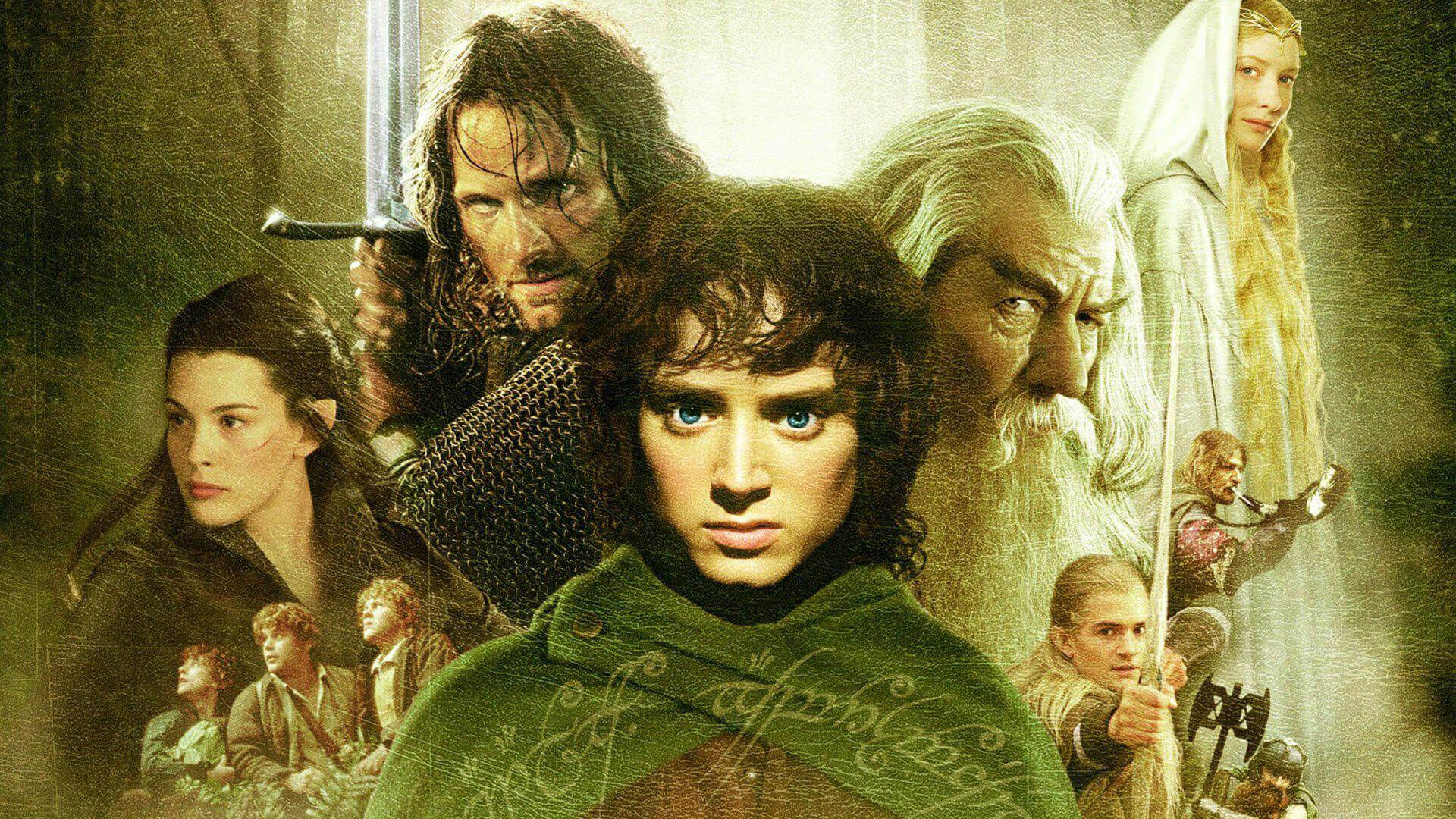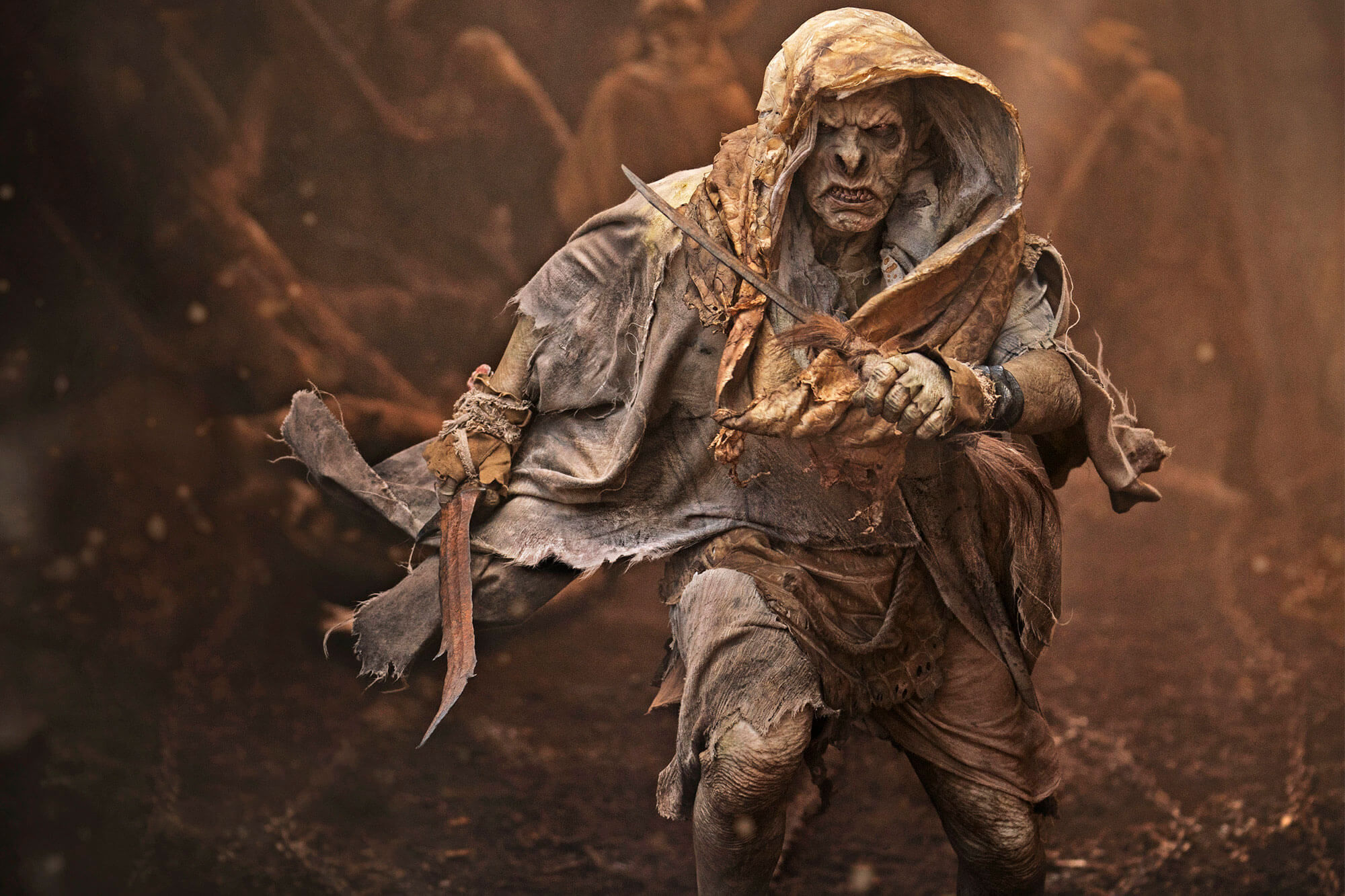Athabasca University tutor Michael Brisbois talks Rings of Power, racism in sci-fi fandom, the pros and cons of adapting J.R.R. Tolkien's work for the screen, and more
When Dr. Michael Brisbois first discovered The Hobbit and The Lord of the Rings at the age of 9, he knew right away that something was different about J.R.R. Tolkien's tales of Middle-earth.
Just like Bilbo Baggins's quest for treasure in the Misty Mountains, it was an experience that would change his life.
"When I read The Lord of the Rings, it sort of spoiled child fantasy for me. I read that and I was like, this is the serious stuff," recalls Brisbois, an Athabasca University English tutor.
Brisbois became hooked on fantasy throughout his teens, and Tolkien's work would later become an academic focus, including a master's thesis and several journal articles.
So, as a lifelong fan and Tolkien scholar, Brisbois has been following with interest recent controversies about Amazon's big-budget streaming series Rings of Power and backlash from fans about everything from canonical errors to its diverse cast.
Brisbois chatted with The Hub to talk about the challenges and advantages of adapting beloved books for the screen, racism among sci-fi fandom, and whether he thinks the mystery character who crashed to Middle-earth in a ball of fire is a certain famous wizard.
The Hub: Why have J.R.R. Tolkien's The Hobbit and The Lord of the Rings been so enduring in the public consciousness?
It's inventive, and obviously, incredibly influential. Tolkien's footprint on an entire genre of literature is significant. Certain authors are like critical nodes within an interconnected constellation of writers. Tolkien sits at the centre of a major node.
He clearly expressed something in the human imagination that was vital. I particularly like Thomas Shippey's take about this question, about the way in which evil is portrayed in The Lord of the Rings. Sauron doesn't have a form-he's not the kind of villain you can slay, like Voldemort. You don't defeat him. He is this concept of sorts about the number of ways in which we might think about society or individuals going wrong.
And some of the themes, for example, the way in which there's tension over, "Should we fight in war? Or should we not fight?" That's a serious conversation in The Lord of the Rings. Similarly, we can see some of the concerns around pollution and environmental degradation being repeated within The Lord of the Rings.
Sauron doesn't have a form-he's not the kind of villain you can slay, like Voldemort. You don't defeat him.
Michael Brisbois

How do you, as a Tolkien scholar, view movie and TV adaptations of his works?
I teach a couple of courses on adaptation, and it's a tricky topic. Whenever I'm looking at an adaptation, I think, what's happening here? Is the artist playing with ideas? For better or worse, many people will focus on fidelity-how faithful is the adaptation to what they perceive to be the original? Fidelity as a concept is not that terribly useful for filmmakers, because you can't be faithful to the novel because the mediums are so radically different.
It raises a number of interesting issues, but adaptation is also a primary way in which art gets made. Many Hollywood movies are adaptations of some sort of literary source. But if we're honest about things, many writers have adapted, changed, shifted, or borrowed ideas from other works.
What do you think about The Lord of the Rings adaptations?
Peter Jackson's Lord of the Rings films add characters and events that are not there in the book. Characters are radically changed, characters are removed, dialogue is shifted around. But some things are verbatim from the novel. And those are very successful adaptations of the work.
I think The Hobbit movies are seen more as a reinterpretation or interaction, as opposed to a recreation because those movies added so much. There are so many elements that are not present in The Hobbit, and that has been negatively received by many reviewers.
Tolkien himself was interested in the idea of adaptation of his works. During his lifetime, he was more interested in the possibilities of animation simply because of limitations with live-action films at that time.
Tolkien himself was interested in the idea of adaptation of his works.
Michael Brisbois

What do you think of Rings of Power, which is inspired by Tolkien's Middle-earth but isn't based on source text?
From what I've seen, there's nothing here that deviates from the way Peter Jackson has presented Middle-earth, which is maybe a little bit of a disappointment. They had an opportunity to do something radically different. They could have done something experimental. But they didn't, and that's fine. It shows how well Peter Jackson created a filmic universe around Tolkien.
There's a lot of speculation about the mystery character who crash-lands from the sky.
I'm assuming it is Gandalf. There are a few little clues involved with this stranger who falls to the Earth in a crater that surprised me. I don't think it aligns neatly with how I've always understood the lore of the arrival of Gandalf and Saruman and the Council of Wizards.
What else has surprised you about Rings of Power?
Some of the inventiveness has surprised me. What delighted most, in the second episode, was the way Elrond was presented. The scenes in which Elrond goes to the Dwarven kingdom and negotiates with Durin was a really engaging scene. It was fun, and I thought it added a little dimension to Elrond, this political figure who's good at gathering people together.
It is worrisome that any actor is harassed on social media because of a casting choice … There's a much larger pattern here that is not necessarily about The Lord of the Rings.
Michael Brisbois
What do you make of fan backlash about casting choices being too diverse and in contrast with Tolkien's works?
It is worrisome that any actor is harassed on social media because of a casting choice. There is a level of behaviour that's alarming-maybe even criminal-to harass someone like that. And I suppose the question of whether or not Middle-earth is a diverse place is a moot question.
If I am objective and put on my scholars hat, this is not the first instance of this sort of focus around racial casting. This occurs in multiple film projects, like where Star Wars and Marvel actors have been harassed. There's a much larger pattern here that is not necessarily about The Lord of the Rings.
The casting is not really altering the material; I think they've been very careful to cast sensibly. And interestingly. And so far, the acting has been perfectly fine, which, from my perspective, is really sort of the main concern as we are fundamentally watching actors act in a drama, not reading a book.
What do you hope to see from Middle-earth in the coming episodes?
If they're brave, there's lots to explore. I am very interested to see if they expand outwards into some of the eastern or southern regions that exist outside of the main place where The Lord of the Rings takes place. That's one part of the world they could expand and bring in characters from other cultures outside of what we see in the Shire.
Part of me is quite interested to see how they're going to handle Sauron. If I recall correctly, when the rings were being forged Sauron is viewed as a figure that the races of Middle-earth are working with. Instead of the angry dark lord, we have someone who has to be convincing and suave. There's other stuff on the horizon I can look forward to, like the Balrog. We'll have to see how it goes.
Banner image: Matt Grace/Prime Video